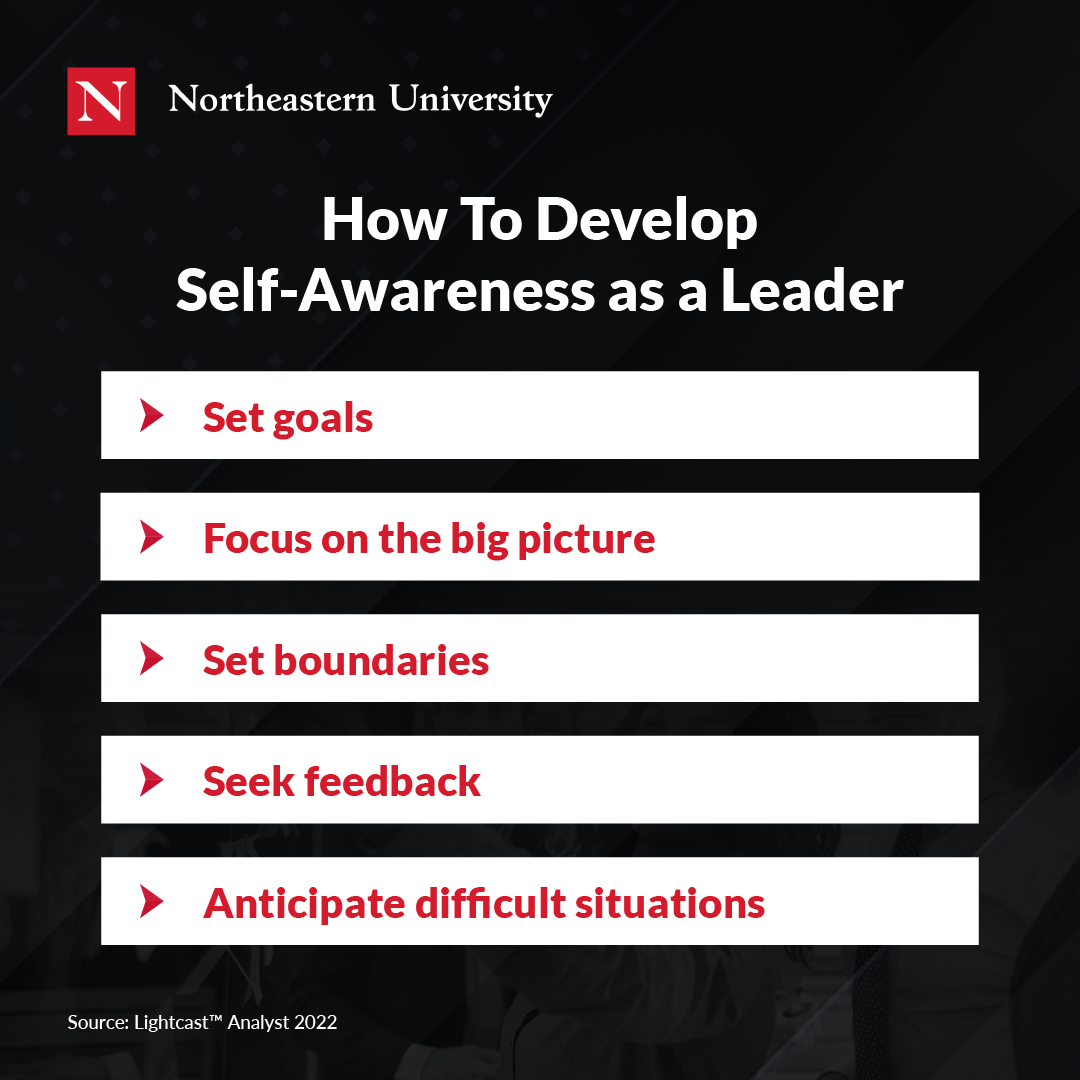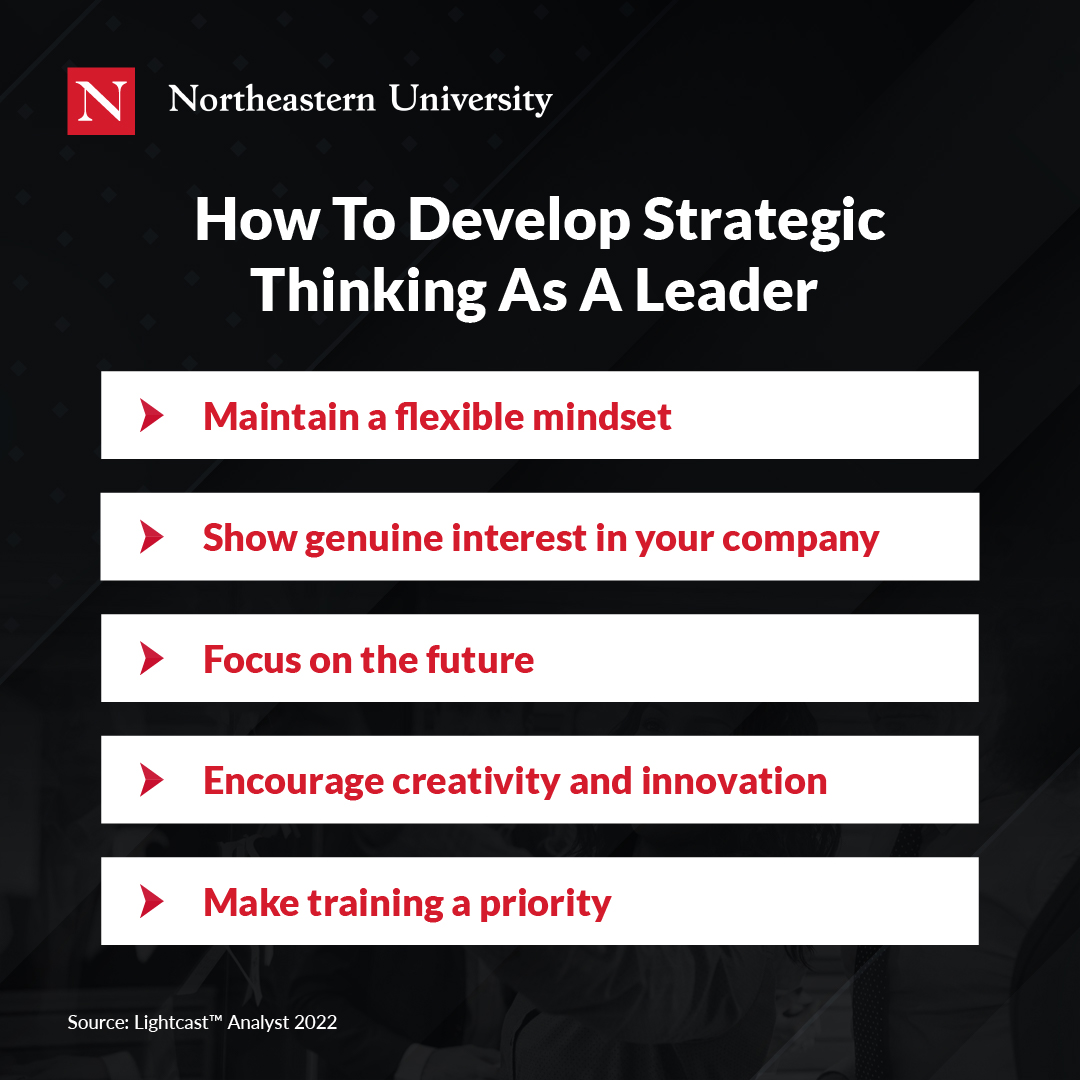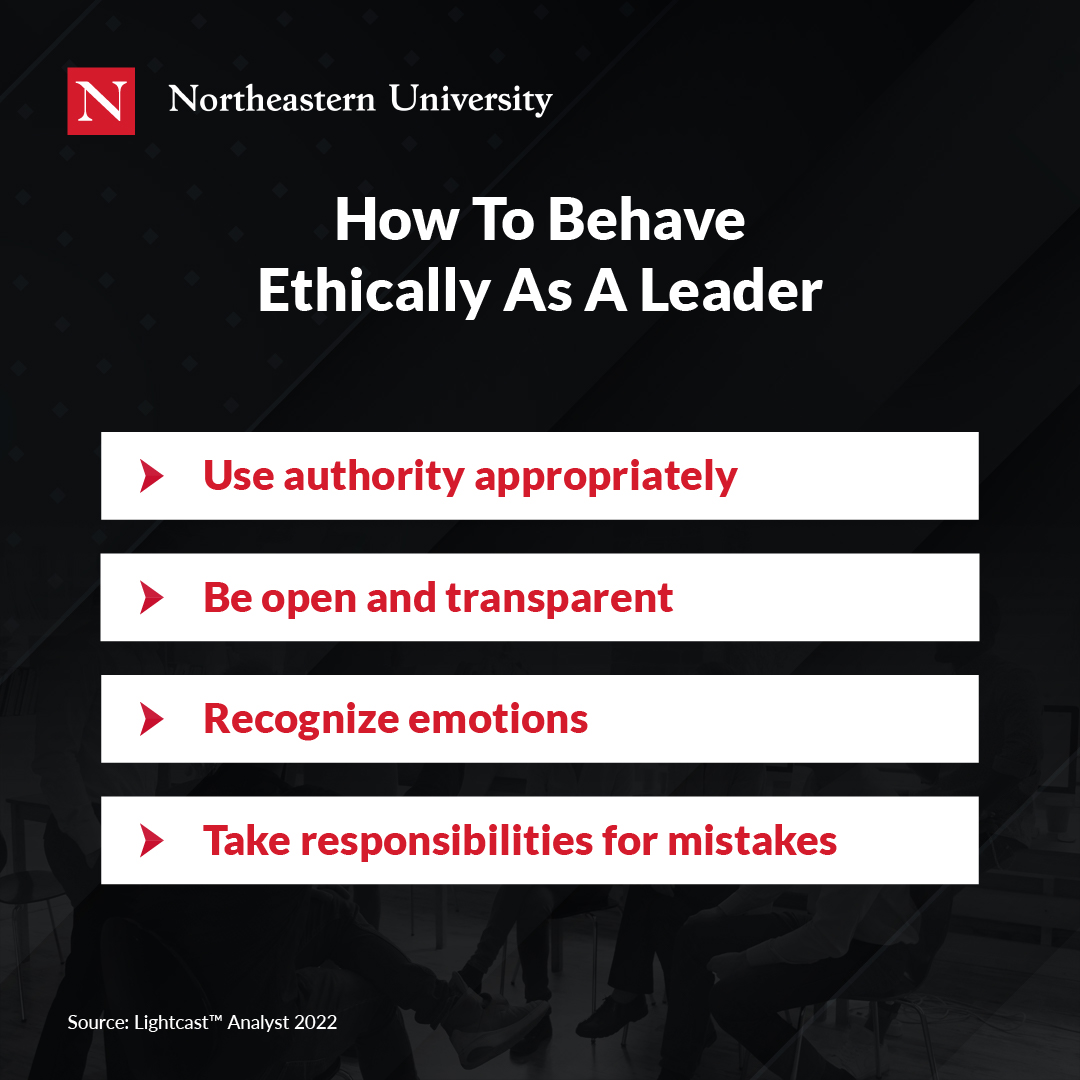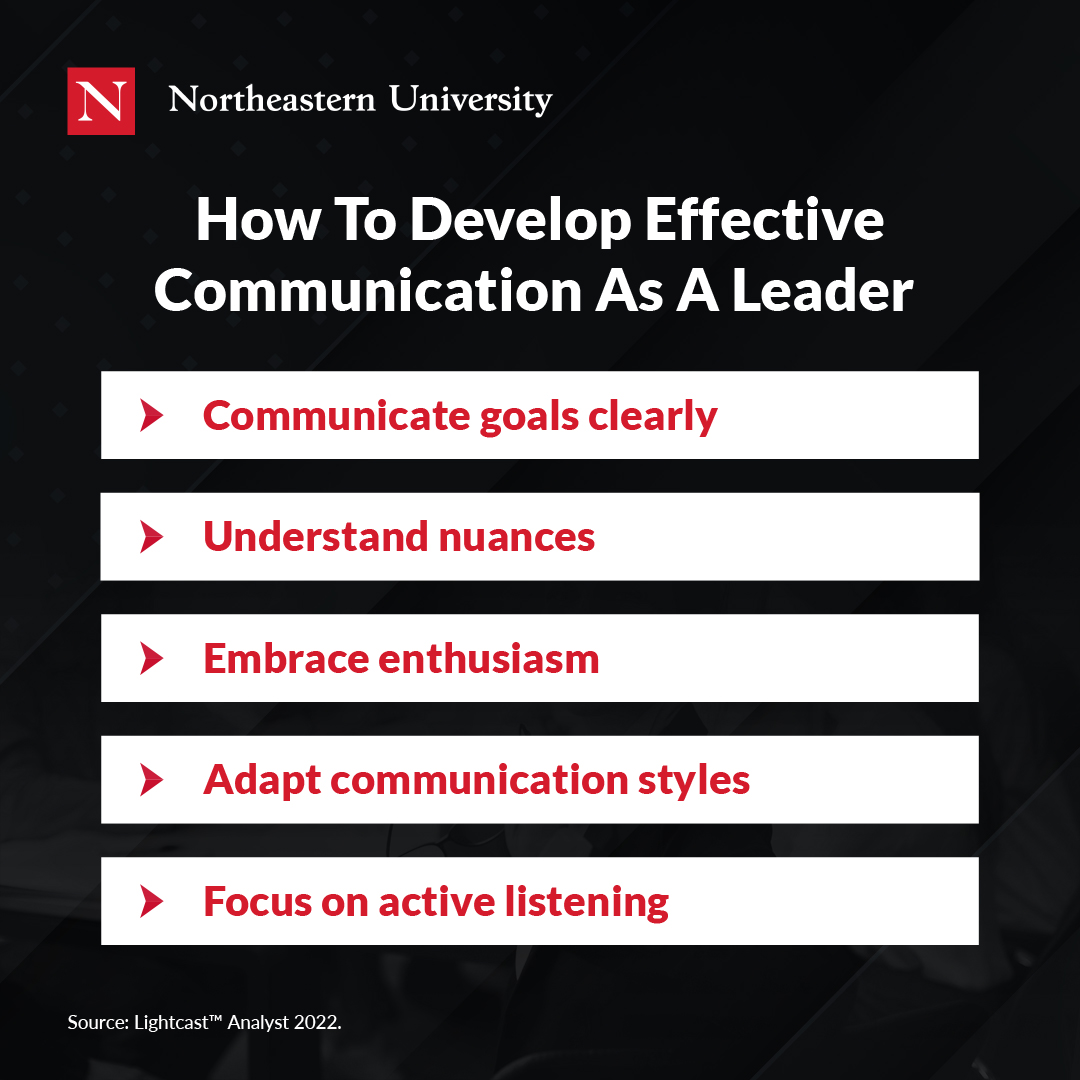
Leadership as the Key to Professional Success
March 10, 2021
For those willing to put in the hard work to hone their leadership skills, the career benefits can be significant and gratifying.

By Shayna Joubert
July 3, 2024
You’ve probably heard the expression “born leader.” The phrase implies that the qualities that make a good leader are innate—you’re either born with the skills it takes to be a leader, or you’re not. And it’s true that certain traits tend to be innate—such as charisma, humility, and a sense of humor. However, two research studies—one study with male twins and another with female twins—found that only one-third of the variance in leadership qualities is associated with heredity.
In other words, many key leadership qualities can be learned and improved upon over time, such as effective communication, goal setting, and strategic thinking.
“The foundation of Northeastern’s Master of Science in Organizational Leadership is that leaders can be developed,” says Teresa Goode, associate teaching professor for the leadership program at Northeastern University. The program emphasizes experiential learning, or the acquisition of knowledge through observation and experimentation in a professional setting, as a key method to help students develop essential leadership qualities.
Many organizations, including higher education institutions like Northeastern, increasingly recognize the benefits of this approach and have put it to use to develop the leaders of tomorrow. “Instead of traits, our program is competency-based,” Goode adds. “We break these key competencies down to behaviors that students can observe, practice, and get feedback on.”
There are several essential qualities that define a successful leader for any organization. A well-rounded leader is capable of providing guidance and inspiration to everyone around them. Their leadership style is made up of authority as well as a positive attitude to foster their team members’ qualities and create a work environment where they can be open, honest, and productive.
Along with being authoritative and approachable, effective leaders possess a growth mindset. This means they’re always focused on their company or organization’s common goal and overall mission.
Learn how to develop the skills required to lead effectively in today’s digital, global world.
Successful leaders demonstrate the following five leadership qualities in their personal and professional lives, inspiring others to take action and set a course for future success. True leaders also practice key behaviors on a regular basis in order to strengthen the positive impact of these qualities.
Effective leaders focus on developing their emotional intelligence, Goode says. Leaders that work to refine this quality are more adaptive, resilient, and accepting of feedback from others. They also practice active listening, are open to change, and are capable of effective communication.

The following behaviors will help you focus on your self-awareness and personal development to develop this important leadership quality.
This leadership quality builds on the principles of the situational leadership theory, which suggests that effective leaders adapt to whether an individual or group is ready, willing, and able to take specific action. Delegating, coaching, and mentoring are important tasks for situational leadership, Goode says.

These behaviors will help you demonstrate leadership ability by developing others within an organization.
“As a leader, you have to look forward. You have to think about where the organization is going,” Goode says.
Leaders must consider internal organizational factors, such as product road maps and staffing needs, as well as external factors, including government regulations and technology advancement, when making strategic business decisions.

Emphasizing the following behaviors will help develop leadership qualities related to strategic thinking, innovation, and action.
Strong leaders consider the ethical consequences of the decisions that they make—for both their customers and their teams.

Taking these behaviors into account will increase your awareness of ethical practice and civic-mindedness, which reflects personal concern for the benefit of your entire organization and the community as a whole.
Respected leaders are able to clearly communicate with individuals, business units, the entire company, and stakeholders outside the organization. In an increasingly global economy, leaders must also acknowledge and respect different communication traditions, Goode says.

Practicing these behaviors will help leaders increase the effectiveness of their communication.
You can further develop your leadership skills by enrolling in a master’s degree or certificate program, depending on your career goals. Northeastern offers a number of specialized master’s programs, as well as a certificate in leadership, to support leaders in any industry. Learn more about them here.
Editor’s Note: This post was originally published in January 2019. It has since been updated for relevance and accuracy.

March 10, 2021
For those willing to put in the hard work to hone their leadership skills, the career benefits can be significant and gratifying.

July 31, 2024
Disengaged employees are bad for morale—and the bottom line. Here are 5 tips that will help managers communicate more effectively to motivate employees.

January 28, 2024
From building your professional network to increased salary potential, a graduate degree can have a significant impact on your career.